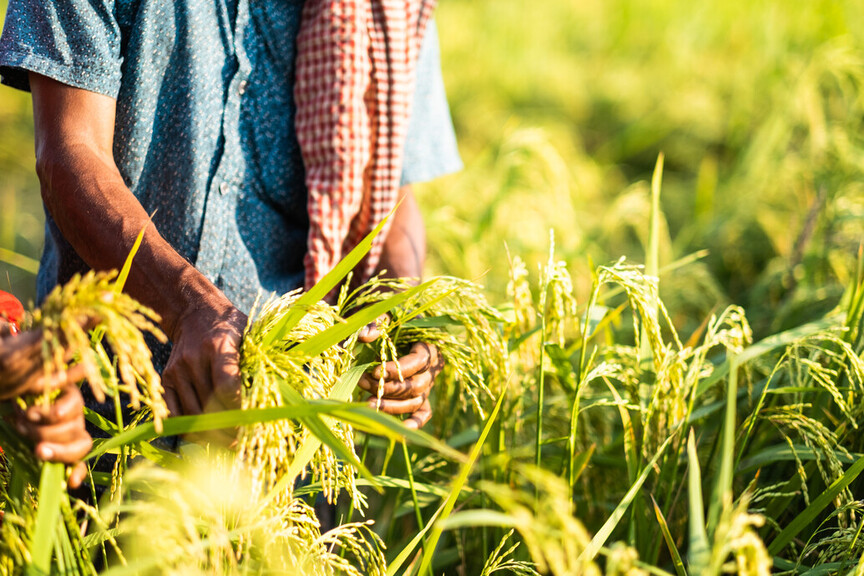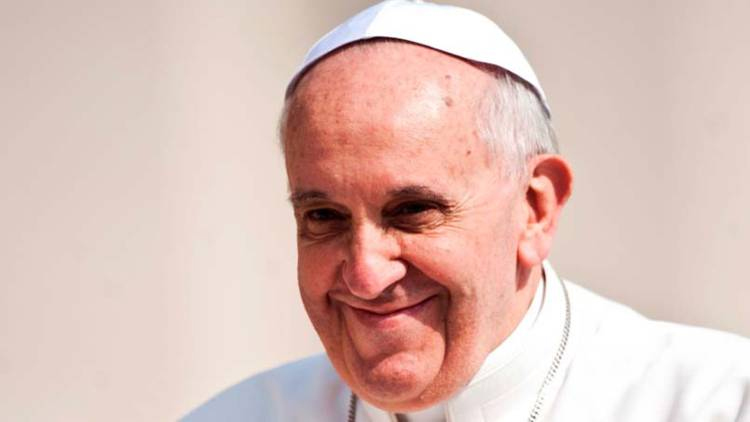World Day of the Poor: Pilgrims on the earth

Ahead of World Day of the Poor on Sunday 19 November, Francis from our Theology team reflects on the message of the Manna and what it means for us today.
The book of Exodus, chapter 16 tells of the ancient Israelites gathering Manna in the desert, having fled from slavery in Egypt. Manna is a wondrous food that falls from the sky. But there are rules for eating it. It must be gathered each day, a perfect sufficiency for each person, and cannot be hoarded, or it stinks. On the sixth day, there is a ‘bumper crop’. Enough to last through the seventh day, when a Sabbath is honoured. No gathering is allowed.
This foodstuff represents a limit to human planning and control and therefore a complete dependence on God. Through the Manna, God draws the people back to trust, undoing what slavery has done to their minds and hearts. Pharaoh’s regime was based on endless accumulation and hoarding, hence the slavery. The message of the Manna is that God’s way is not Pharoah’s way. God’s way of attending to daily needs, trusting the earth’s fruits rather than stockpiling, and respecting holidays, is enshrined in the economy of the Manna.
Beneath these lessons about our relationship to food and land, there is another message in the Manna. The Israelites are told to go and “glean” the Manna. To glean means to gather leftovers. It evokes what is done by those who are poor gathering the leftovers of the harvest from the edges of the field. This is their right in Old Testament Law. The use of the word “gleaning” to describe what the Israelites are doing with the Manna deliberately identifies them with widows, orphans and strangers – those known in society for relying on the leftovers of the harvest. The message of the Manna is also: “you are a poor people, your basic identity is shared with the poorest among you.”
What does it mean for life to be a shared journey with those who are marginalised or excluded in our world?
A shared journey
Many people will get this at a practical level. We might paraphrase Gandhi in saying that society is only as rich as its poorest citizen. Organisations like CAFOD can see how people’s fates are tied together in an interdependent whole when the people affected by climate change (often people with the least power and financial wealth) speak to us of the threats facing humanity. “Leave no one behind” is a Sustainable Development Goal that is relevant for all countries.
In the Bible, our shared life with people who are poor is not only a social fact which will one day catch up with us, but also a personal summons. Jesus’ statement “the poor you shall always have with you” (Matthew 26:11) is not a resigned acceptance of poverty. The accent is on the “with you”. In the Jewish Law that was Jesus’ core moral compass, looking after those on the peripheries must be taken on as a practical responsibility of each person.

Pope Francis’ message for World Day of the Poor, challenges us not to settle for a “hasty handout” as our response to poverty. Journeying alongside people is key to reestablishing “the just interpersonal relationships that poverty harms”. It is particularly crucial today, he says, because so often poverty is presented as a “film clip” that affects us momentarily, but which is forgotten when we encounter people of flesh and blood in daily life.
There are many ways in which we could bring people’s poverty into a more central place in our lives as Catholics.
Stand alongside our sisters and brothers and call for change in our world.
Pope Francis focused on the figure of Tobit from the Old Testament. A courageous if cantankerous man who busies himself burying the bodies of his exiled kinsfolk. On the feast of Pentecost, Tobit tells his son Tobias to go and find a person in need to share the meal with. The pope reflects:
“How meaningful it would be if, on the Day of the Poor, this concern of Tobit were also our own! If we were to invite someone to share our Sunday dinner, after sharing in the Eucharistic table, the Eucharist we celebrate would truly become a mark of communion.”
World Day of the Poor message 2023
There’s a big hint if ever there was one!
Find out more about the World Day of the Poor.
We are the gleaners
However, the Manna experience is not just telling the Israelites not to forget the orphans, widows and strangers – those who go out to “glean”. It is telling the Israelites, and, perhaps, us – the readers – that we are gleaners.
Pharaoh’s mistake was to think he was not a gleaner, but a landowner and a master. God wants to form us in a different mindset. A mindset of gleaners who tread lightly in our common home, facilitating the flow of resources according to need. This is why, according to the Jewish scriptures, land cannot be permanently sold, farms must be left wild on the seventh year, and there must always be leftover for those who have fallen on hard times. On this planet, we are not masters but tenants in the Lord’s vineyard, or, as Pope Francis put it in his message for the Jubilee year 2025, “pilgrims on the earth”.
When Jesus said “blessed are the poor”, was he perhaps speaking of the blessing that can come to us if we realise we are pilgrims on God’s earth? Was he speaking of the blessing that comes when we “Look at the birds of the air; they do not sow or reap or store away in barns, and yet your heavenly Father feeds them.” (Matthew 6:26).
Pray for our sisters and brothers living in poverty on this World Day of the Poor.